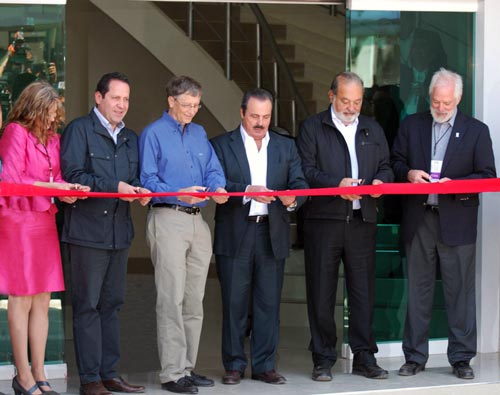Daimoniz Miondo is one of 800 farmers in Chipeni, Mvera Extension Planning Area, Dowa District, Malawi, who has adopted conservation agriculture practices in recent years with joint support from Malawi’s Department of Agricultural Extension Services, the NGO Total LandCare, and CIMMYT. “I’m harvesting between 30 and 40 bags of maize now per acre, where I used to get only 15 or 20 bags,” says Miondo, who farms to support a household of seven. “Before conservation agriculture, there was a lot of erosion and the rain would wash away the fertilizer and affect the yields.” Conservation agriculture practices cut labor and other farm costs, as well as helping to capture and hold rainfall, thus salvaging harvests when drought hits. Photo credit: Trevor Samson/CIMMYT
Originally posted on the Impatient Optimists blog (Bill & Melinda Gates Foundation) on 13 February 2013.
We are extremely pleased to welcome Bill Gates and Carlos Slim Helú to CIMMYT headquarters near Mexico City today. They have come to inaugurate major infrastructure improvements for CIMMYT supported by their respective foundations. The nearly 20,000 square meters of construction include badly-needed advanced laboratories, greenhouses, and training facilities. They will be used for cutting-edge research by CIMMYT to help speed the access of developing country farmers to the benefits of science and innovation.
Where are we now and what have we learned?
The repeated food price hikes of recent years most sorely affect the poor, who spend as much as three-quarters of their daily income simply to eat. We know that 0.8 billion human beings are not eating enough.
We’ve not seen the last of food price crises. Widespread, severe droughts of 2012 have devastated global grain harvests, further reduced food stocks, made export markets skittish. Because the world relies heavily on a few, high-production “bread basket” countries, low stocks superimposed on financial speculation will surely bring further, seismic shocks to global food markets.
From the 2007-08 food price peaks, which fueled food riots in more than 30 countries, it should be clear that global food security is everyone’s concern, in both developed and developing countries.
Not all is gloom and doom: Innovation can support more precise and productive science and farming.
There is hope, and more bountiful harvests and sustainable agriculture are key parts of the solution. In many developing countries farming continues to employ large segments of the populace and plays a central role in national economies. There is enormous potential for farmers to boost productivity, reduce reliance on destructive practices, move beyond subsistence, and power development at large. Best of all, new, exciting science is available to adapt to small-scale farmers’ needs, and these farmers are actually looking to policymakers and research and extension organizations to support them.
CIMMYT partners with those actors and others worldwide to offer farmers improved options: better seed and knowhow, improved cropping systems, more secure crop storage methods. Progressive farmers begin to view their daily occupation as an enterprise, rather than mere subsistence, so the focus shifts onto science and innovation to gain precision. Several examples:
- DNA analysis to home in on high-value maize and wheat traits for better yields, disease resistance, heat and drought tolerance.
- Doubled haploids to speed the creation of genetically pure inbred lines and new maize hybrids.
- Conservation and precision agriculture, including more targeted application of irrigation water and fertilizer to boost system output while saving resources and the environment.
- Cell phone services so farmers can access precise, locally-tailored information on weather, markets, recommended crops and practices for their fields.
An extraordinary initiative funded by and co-coordinated with Mexico—known as MasAgro, the Sustainable Modernization of Traditional Agriculture—is taking these and other innovations directly to Mexican farmers and sequencing the DNA of CIMMYT’s vast maize and wheat seed collections. Similarly innovative partnerships in Africa and Asia feature cropping systems approaches to increase yields and the resilience of the resource base, while supporting farmers’ direct involvement to test and promote new practices. Millions of smallholder farmers and consumers in sub-Saharan Africa are benefiting from the adoption of drought tolerant maize varieties developed using advanced breeding techniques.
The work of all these partners, including CIMMYT, would not be possible without the support of other key partners: national governments, foundations, development banks, and other public and private agencies, including the CGIAR Consortium, who represent the political will and commitment of their constituents through their donations and engagement. The Bill & Melinda Gates Foundation provides not only momentous funding for our work, but invaluable technical guidance and political support.
Returning to today’s inauguration, thanks to the generous support of the Carlos Slim Foundation and the Bill & Melinda Gates Foundation, we have effectively doubled our research capacity here in Mexico.
We can accelerate our efforts to unlock the tremendous potential of wheat and maize using modern information and communications technology, combined with the improved and more sustainable agricultural practices. The very personal and proactive engagement in CIMMYT’s mission of visionary personalities such as Mr. Slim Helú and Mr. Gates, and the on-going support of their respective foundations for our relatively little-known research institute, send a strong signal to the world that something important must be going on here. Indeed there is.

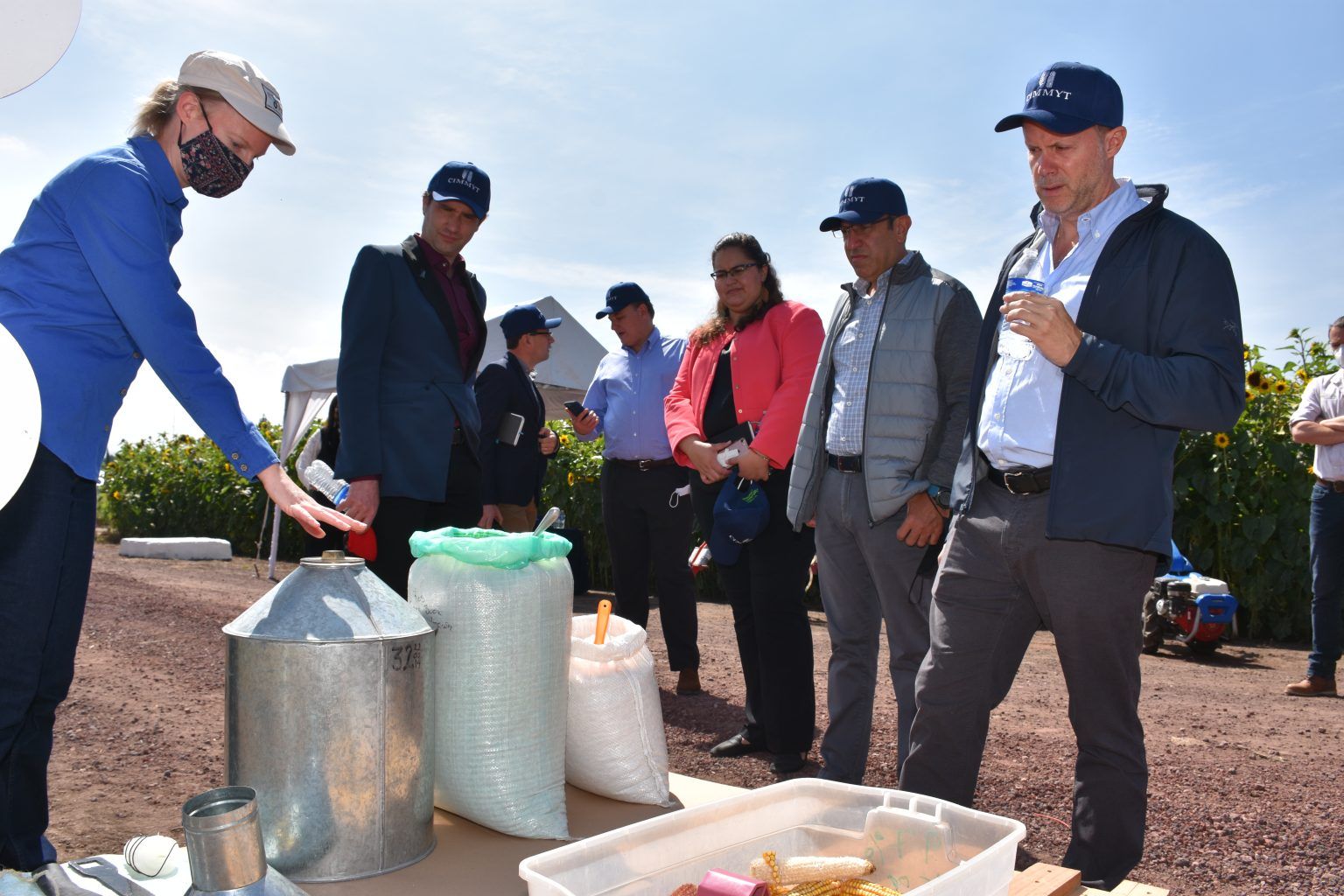
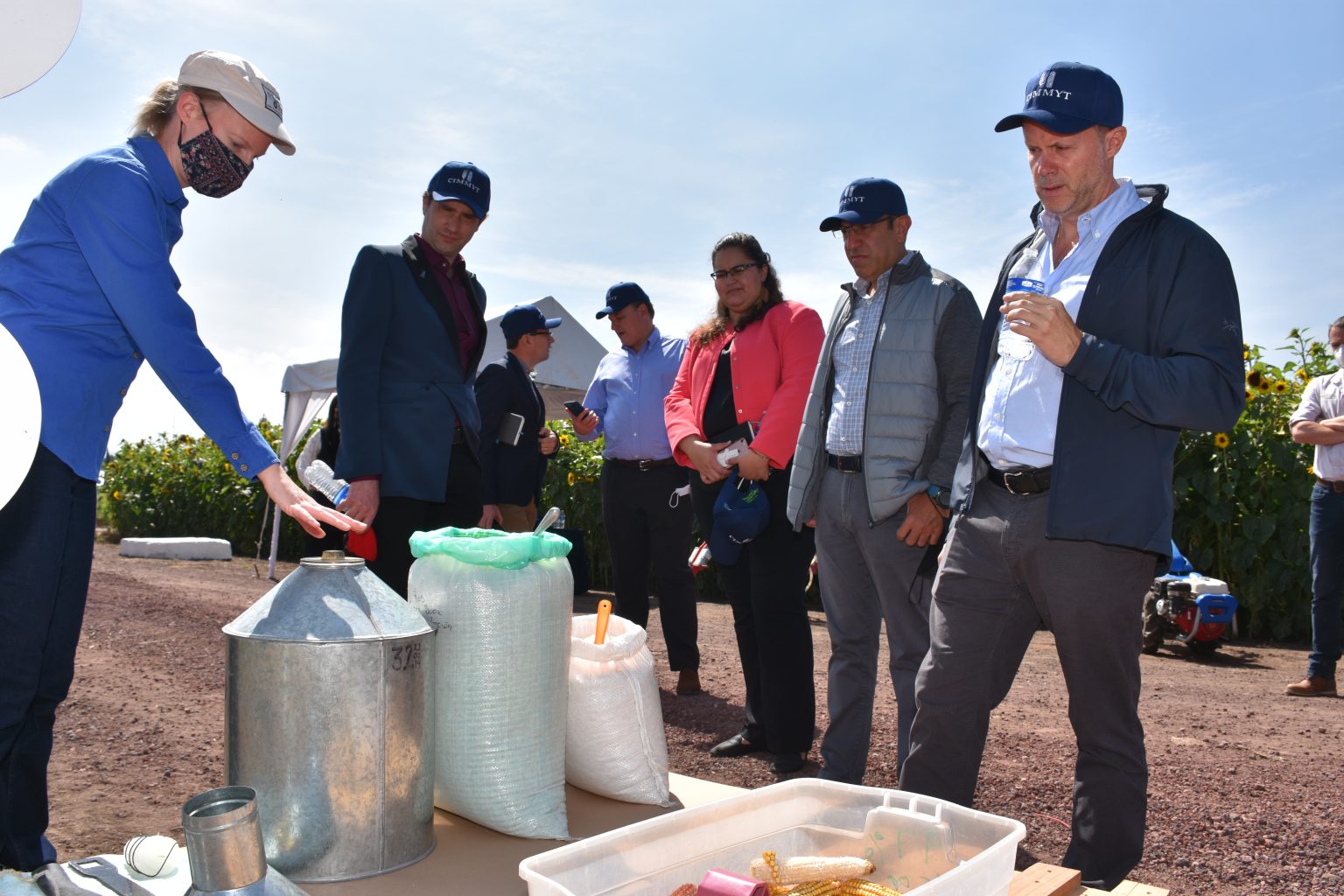
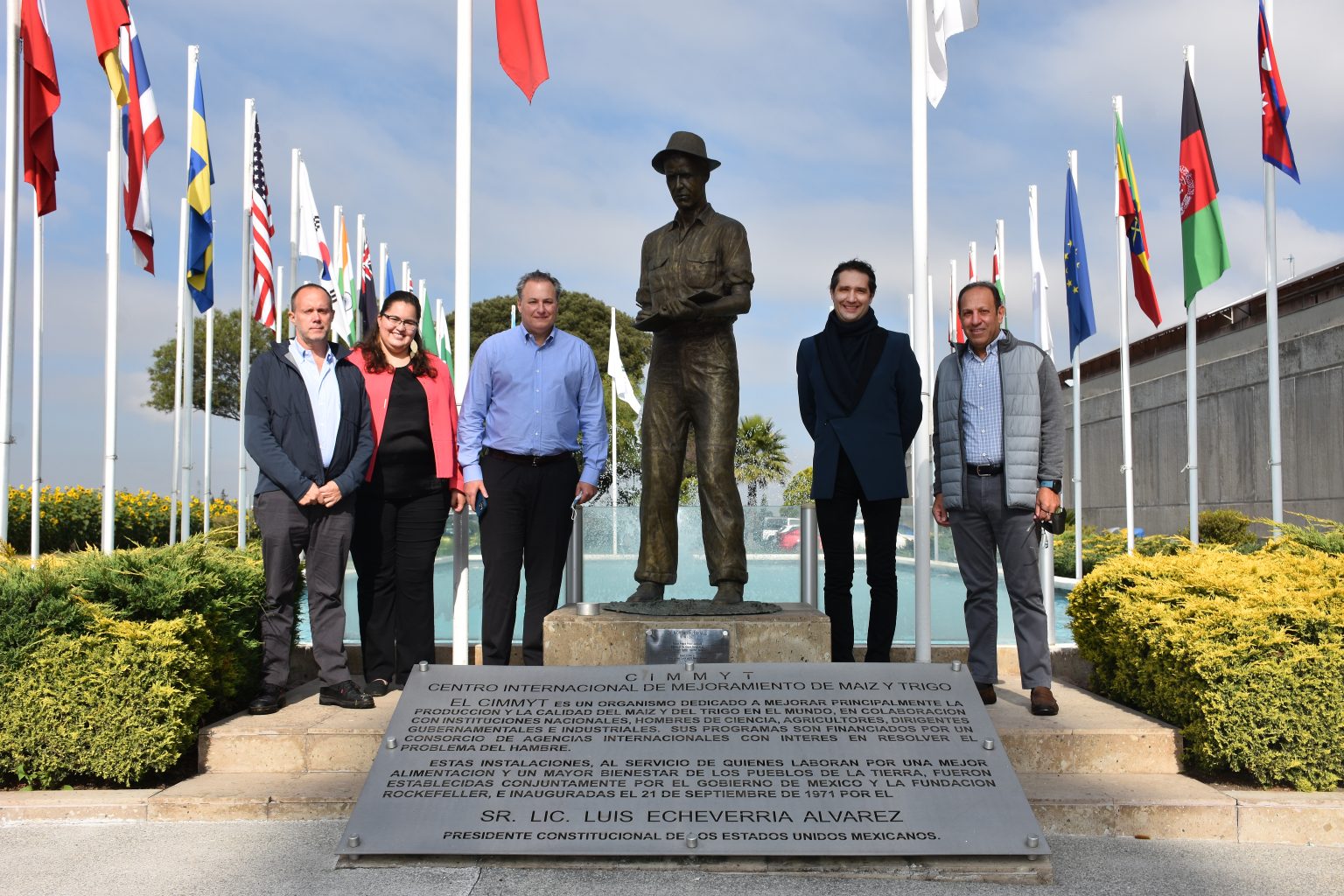
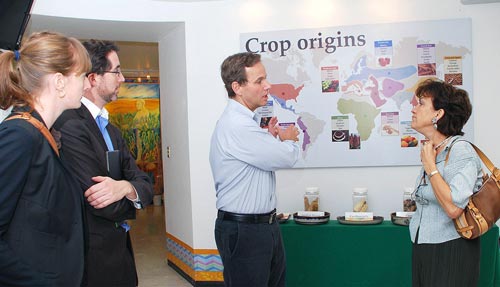 After a year of exchanges, planning, and construction, CIMMYT and
After a year of exchanges, planning, and construction, CIMMYT and 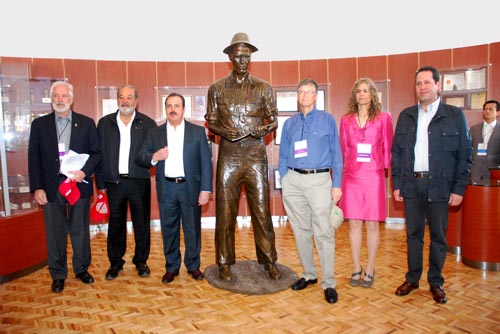 On 13 February 2013, CIMMYT inaugurated a new US$ 25 million research complex at its headquarters in El Batán. The new advanced bioscience research facilities, 45 kilometers (20 miles) from Mexico City, marked its grand opening to a crowd of more than 100 invited guests.
On 13 February 2013, CIMMYT inaugurated a new US$ 25 million research complex at its headquarters in El Batán. The new advanced bioscience research facilities, 45 kilometers (20 miles) from Mexico City, marked its grand opening to a crowd of more than 100 invited guests.